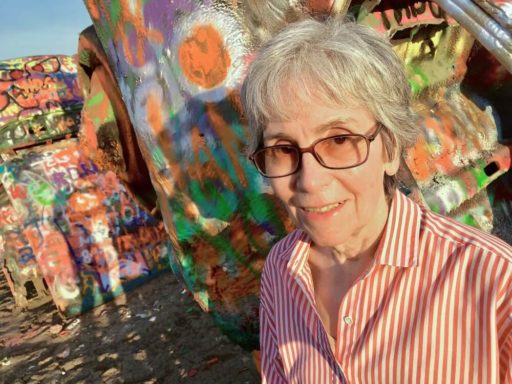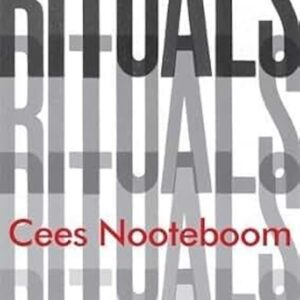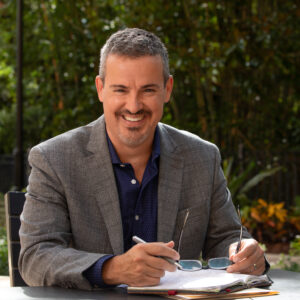We recently spoke with author A.G. Mojtabai about her new Slant book, Thirst
Where do your stories come from?
From the usual places, life and literature.
Perhaps because I do not have a literary background, I always need at least a nugget of fact to ground me before I allow myself to give way to fantasy.
Backgrounding Thirst are years of experience as a hospice volunteer and a previous collection of stories (Soon) narrated from an inpatient hospice unit.
Usually I don’t begin speaking until forced to—unless seized by the throat, as it were. Profound puzzlement is a starter, deep disagreement is another. With one book (Called Out), an argument with a canon lawyer was the inspiration. My irritation was strong enough to power an entire book—and also to put off a number of readers.
Books are also made from other books. I picture literature as a house haunted by the ghosts of authors past, full of echoes and whispers. I may only be able to name the literary ancestors of a given book after the fact, but I always know that they exist. In the case of Thirst, it is Father Manuel from Unamuno’s Saint Emmanuel the Good, Martyr who has pre-eminence.
The main characters in Thirst are Roman Catholic—one is even a priest. You are not Catholic yourself, but you write with remarkable insight into the liturgical, sacramental, and existential dimensions of Catholicism. How did this come about?
I have been fellow-traveling for decades with Catholic clergy and laity in the antinuclear movement. Along the way, Catholic culture has grown familiar, almost second nature, to me.
But let me back up a bit and tell you a story—a true story.
In 1981, at a time of mounting Cold War tensions, I became aware that Amarillo, a midsized Bible-belt city on the High Plains of Texas, was the site of the sole final assembly plant for all nuclear weapons in this country. The combination of intense religiosity and nuclear boosterism reported to prevail in the area was puzzling and alarming to me. Gradually, I became obsessed—I could think of little else.
The only way to free myself from my Amarillo obsession, it seemed to me, was to take myself down there and see for myself, and to write an article to get it out of my system. I happened to be released from teaching that year, thanks to a Guggenheim Fellowship, so I was able to set out.
It was a life-changing decision. Writing the article did not relieve me of anxiety, nor of questions. I realized that I needed to stay in Amarillo for some length of time for a fuller acculturation if ever I hoped to understand it. And it would need the space of a book to fit the puzzle pieces together. In 1982, I was contract-bound to return to my teaching position at Harvard, but I immediately set my sights on points west for the following year. Oklahoma was as close as I could get to Amarillo. When the University of Tulsa made a teaching offer I accepted gratefully. And never looked back.
I spent nearly four years going from church to church in Amarillo, carrying a Bible, notebook, and tape recorder. And I did a lot of reading, including some essential documents of the Second Vatican Council. The book that resulted was called Blessed Assurance.
Are you afraid of being accused of “cultural appropriation”?
Unreasonably perhaps, but yes: As a Jew (who remains unconverted) in a Christian milieu, there is a never-forgotten legacy of fear. As a non-conforming Jew, there are other, internal, tensions. As a woman I have been advised to write more about women if I expect to interest a national market—or, more importantly, if I want to be true to myself. On the other hand, as a human being and as a writer, I believe deeply that, if I am attentive enough, nothing human should be alien to me.
I am not a dying priest. But—as an aging person—I know something of what Father Theo knows. I am not a priest, but I can imagine (through a blend of feeling-knowing?) beyond what I have witnessed in glimpses of lives structured around prayer and sacrament. I have taken no vows, yet I know what vocation means. Father Theo’s “thirst” touches on my own times of spiritual aridity, my own search for meaning.
There seems to me nothing inherently wrong in wanting to stretch imaginatively; in fact, it strikes me as obligatory, and possibly the central challenge in writing fiction—an empathic identification with the other.
I fail—I refuse—to understand why the effort to cross cultural boundaries is so disparaged. Where are we trending? Should women be confined to writing about women, men about men, gays about gays, blacks about blacks, each group kept to its separate silo?
Calling the effort of crossing cultural boundaries “cultural appropriation” is part of the problem. It whispers “misappropriation,” seizing what does not belong to you.
It can be that—it can be well-intentioned or exploitive, shallow or deep, well or poorly communicated. And the result, as with all human effort, is necessarily imperfect. But the effort is worth the risk: it’s important to stretch.
You have stayed on in Amarillo long after the publication of Blessed Assurance and continue living there in retirement—why?
Those are really two separate questions.
To the first: Right after the book was published, I stayed on because (so I told myself) I wanted to be reachable and accountable for what I had written. I didn’t want to follow the example of the many reporters who had descended on the city, blowing in and blowing out once they’d gotten their stories.
To your second question about living here now in retirement : I’ve come to appreciate living on the margin—yet in the middle of the country—far beyond shouting distance from the cultural trend-setters on either coast.
I’ve come to love the landscape—prairie and pasture, windmill and grain elevator, a few trees slanted by the wind, and sky, endless sky, which was nothing but an emptiness to me before I learned to look.
And I’ve come to cherish the people—so open and forthright—with whom I so often, and sometimes vehemently, disagree.
One last little story on this point:
Before I ever set foot in Amarillo, when I was still asking myself whether I dared, I called a union official who worked at Pantex to sound him out and set up an interview appointment. All I had was a phone number; I had no idea where he was located on any map; when I asked, he said something I did not understand. I asked him to spell it for me. The name of the town was Muleshoe.
Our brief business concluded, I was about to hang up, when he asked me not to: “I have my dog on my lap and I’m putting him to sleep. Please keep on talking….”
And so we did.
Picture this: Total strangers talking through the night. Manhattan to Muleshoe. Muleshoe to Manhattan. This happened. I didn’t make it up—I couldn’t.





